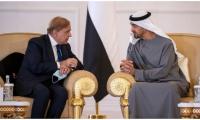Islamabad : Members of the Afghan government’s peace negotiation team Dr Habiba Sarabi and Fatima Gailani urged Pakistani women to stand up in solidarity with the women of Afghanistan in the crucial time of negotiation between the Taliban and the Government of Afghanistan.
They were speaking at a webinar on ‘the role of women in the Afghan peace process’ organised by the Institute of Regional Studies (IRS) here.
Member of the Afghan government’s peace negotiation team and former Minister for Women’s Affairs Dr Habiba Sarabi emphasised the need for engaging and involving women in the future of Afghanistan. She underscored the role played by the Constitution of Afghanistan in upholding women’s rights. She especially referred to Article 22 of the Constitution that accords equal rights to men and women of Afghanistan. She expressed her concern over the target killings of the members of the civil society in Afghanistan and added that if there would be ceasefire in Afghanistan, such target killings would stop.
Dr Sarabi dismissed the argument that she only represented the views of the urban women of Afghanistan. She was of the view that they were the voice of women from all over Afghanistan, including the areas under the control of the Taliban. Dr Sarabi urged the women of Pakistan to present a united front against extremism in solidarity with the women of Afghanistan.
Member of the Afghan government’s peace negotiation team and President of the Afghan Red Crescent Society Fatima Gailani said that in other countries, peace was taken for granted but it was not the case in Afghanistan. She added that peace did not only mean the absence of war but access to health, education, livelihoods, and security for all segments of the society. She highlighted the importance of inclusion of women a part of the process.
Ms Gailani said that the Afghan Constitution was an Islamic Constitution safeguarding the rights of everyone in light of Islamic teachings. She added that the women were a reality of Afghanistan that could not be ignored. She urged further investment in education of women, which, she maintained, was the dream of all the women of Afghanistan. She urged the Government of Pakistan to include women in Pakistani delegations to Afghanistan to send a strong message of support to the women of Afghanistan.
Executive Director of the Afghan Women’s Education Centre Palwasha Hassan said that the inclusion of four women in the Afghan government’s peace negotiation team was evidence of the importance of women in Afghanistan. She lamented, though, that Taliban delegation did not have any women representatives in their delegation. Ms Hassan said that regional aspect of peacebuilding was as important as the regional dimension of the conflict. Therefore, she urged a strong networking among the people of regional countries believing in peace. She added that any form of solidarity shown by Pakistani women with the women of Afghanistan would go a long way in their struggle for safeguarding their rights. She proposed a joint study on the impact of militarisation on women and civil society in both Afghanistan and Pakistan and to develop policy recommendation for the region on the basis of the proposed study.
Barrister Benazir Jatoi who moderated the session said that an extremist government in Afghanistan curbing the rights of women and minorities was not in the interest of Pakistan or any other regional country. Nadeem Riyaz, President of IRS and Zunaira Inam also spoke on the occasion.







